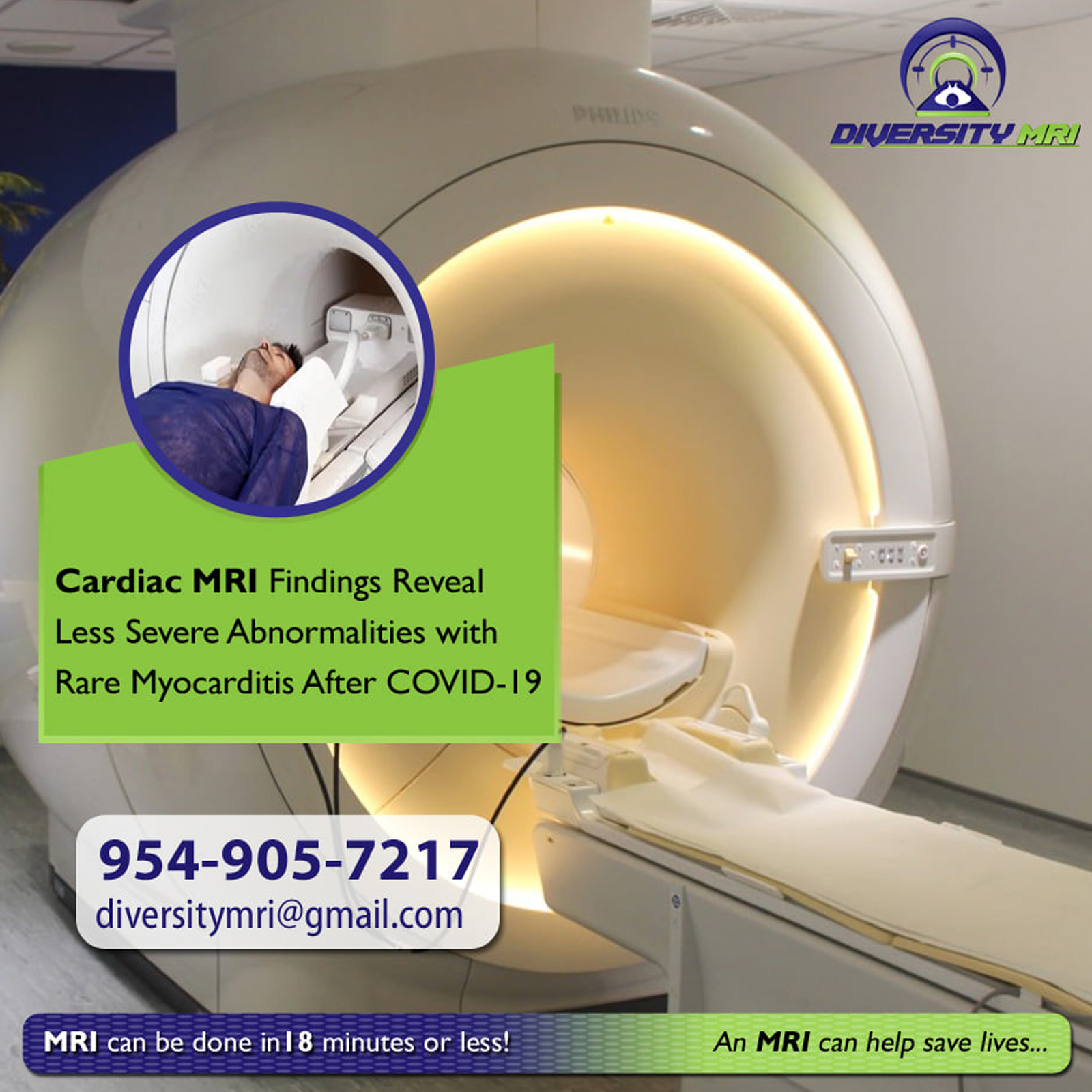
In a new study comparing the development of myocarditis among vaccinated patients to those with COVID-19-related illness and patients with other etiologies, researchers noted less severe abnormalities on magnetic resonance imaging (MRI) and no major adverse events in a short-term follow-up.
Emerging research suggests the development of myocarditis after COVID-19 vaccination has a similar pattern to other causes of myocarditis on cardiac MRI but has less severe abnormalities.
Medical Findings
In a recent retrospective study published in Radiology, researchers assessed the cardiac MRI findings of 92 patients with myocarditis who had at least one T1-based abnormality and one T2-based abnormality. According to the study 10 patients (with a mean age of 51 years) developed myocarditis after a COVID-19 related illness, 61 patients (with a mean age of 44 years) had myocarditis from non-COVID-related causes, and 21 patients (with a mean age of 31 years) developed myocarditis after receiving COVID-19 vaccination.
Things You Didn’t Know
After controlling for factors such as sex, age, and duration between symptom onset and MRI, the researchers found that patients with vaccine-associated myocarditis had a higher left ventricular ejection fraction and less extensive late gadolinium enhancement (LGE), and less septal involvement. The patients with vaccine-associated myocarditis had no adverse events at a short-term follow-up (median of 22 days), according to the study.
The study authors conceded limitations to the study including a small sample size as well as significant differences in sex and patient age between the study groups. In regard to the timing of symptom onset after vaccine administration or diagnosis of COVID-19, the authors acknowledged there is no standard definition in the current literature when it comes to vaccine-associated myocarditis or COVID-19 related myocardial injury.
